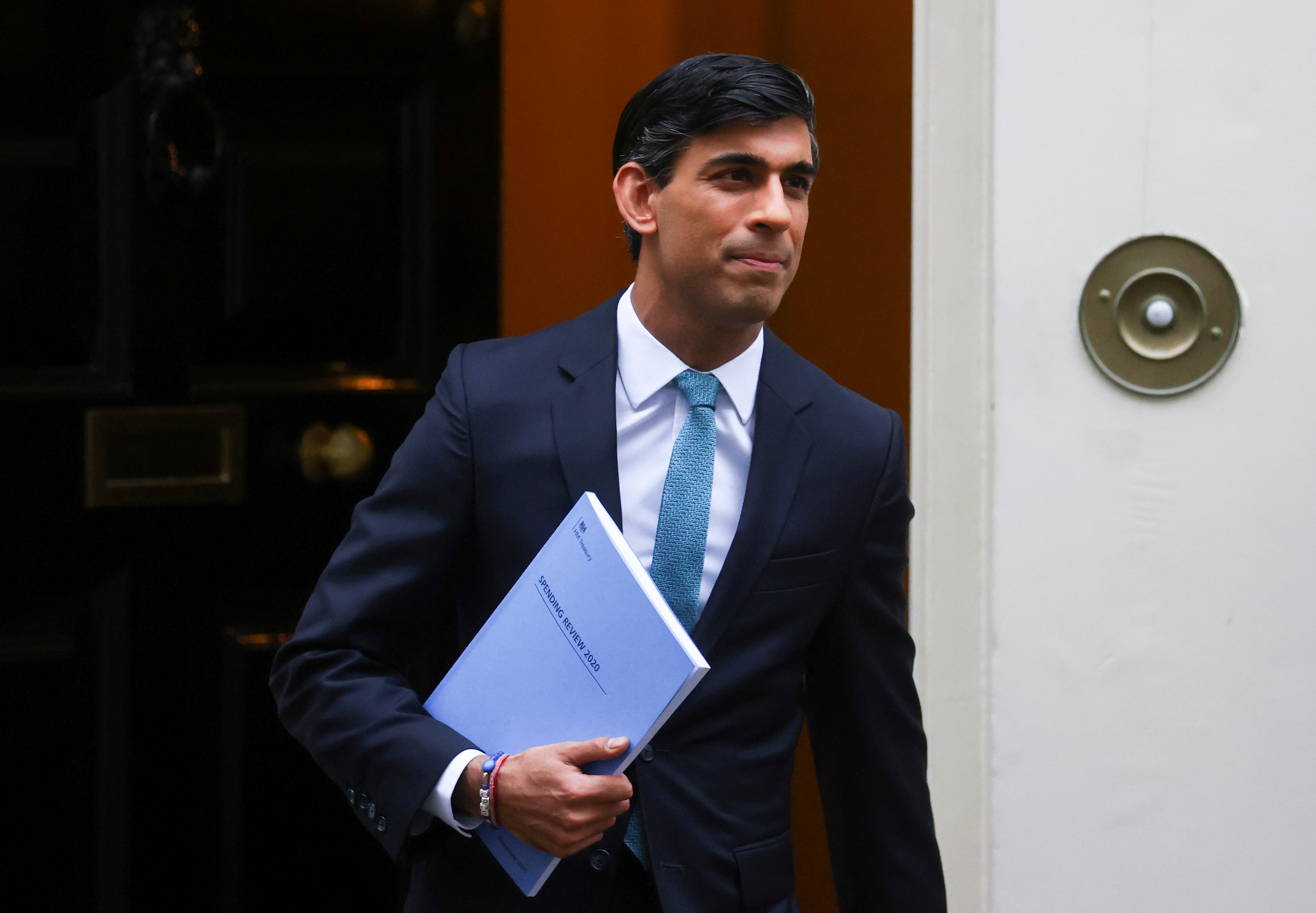‘Delay’ should be the watchword for Rishi Sunak when considering tax rises within the Budget
There will probably need to be some increases in taxation to fill the hole in the nation’s finances created by the Covid-19 pandemic, but now is not the time for them to be implemented, writes Hamish McRae


When Rishi Sunak presents his Budget on Wednesday he should remember the famous (or perhaps infamous) prayer of St Augustine of Hippo: “Oh Lord, give me chastity and continence, but not yet.” The UK will probably need some tax increases, but now is not the time to bring them in.
There will probably need to be some increases in taxation to fill the hole in the nation’s finances created by the Covid-19 pandemic, but there are two reasons why he should delay.
The first is that you don’t want to add to the fiscal burden before the economic recovery is secure. Indeed you do the reverse. The US Congress is considering another $1.9 trillion fiscal boost put forward by the Biden administration. The eurozone is considering more support, with Germany apparently reversing its previous stringency. This is not the time for the UK to move in the opposite direction.
The other is that we do not know the scale of the tax increases needed to get the deficit under control. They may be substantial, but they may be quite limited. It is even possible that they will not have to be any increases in tax rates, for fiscal drag will do the job. Instead is upping the rates, the chancellor could freeze tax allowances and let inflation do the job.
To explain, inflation affects the government’s revenues in two ways. As wages and prices climb, our progressive tax system pulls more people into the income tax net, and it increases revenue from higher earners as they are pulled into higher tax brackets. In addition, inflation also cuts the real value of the national debt as long as the costs of servicing that debt remain below inflation. In the first case it is taxpayers who carry the burden; in the second, it is savers.
I suspect in the end we will have to have some tax increases and then you get into a debate about how to raise money in the least damaging ways: damaging, that is, both to society and to the economy. There are certainly lots of things wrong with the tax system and this is a good time to think about how to fix them. But it makes no sense to jack up taxes when we don’t know the scale of the damage.
We will learn a little more on Wednesday. There are several things to look for. One of course will be the deficit this year. There will not be final figures because the fiscal year still has a month to run. But expect the projection to be below £350bn. That is terrible but not nearly as terrible as the £400bn the Office for Budget Responsibility (OBR) expected last autumn. The thing to watch for will be revenue, not spending. Revenue so far has been running 6 per cent down on the previous year. Again, that is terrible but not so bad as expected.
Then look at the projections for the economy this year. The Bank of England’s chief economist, Andy Haldane, expects it to grow “at a rate of knots” once the restrictions come off. It is very simple. The greater the bounce back, the higher the tax revenues.
Finally, cast an eye over the projected cost of servicing the national debt. One of the things that has trimmed the deficit this year has been the lower-than-expected cost of financing it. But interest rates on government debt are starting to climb. Government debt will level out around 100 per cent of GDP, perhaps a little more. That is about £2.2 trillion. It makes a massive difference whether that is financed at 0.8 per cent (the yield on 10-year gilts on Friday), or 2.5 per cent to 3.5 per cent very long-term average cost of financing the government over much of the past 300 years.
And if eventually there are to be tax increases what then? Well, the government has pledged not to increase income tax, VAT or national insurance. It could argue that these are exceptional circumstances, but it is not a bad idea in politics that if you make a pledge, you stick to it. The trouble is that these are the three biggest sources of revenue, accounting for some two-thirds of all the tax collected. If you cannot change those, you have to lean more on much smaller revenue streams.
The government could increase corporation tax from 19 per cent to 25 per cent, and may do so. But that may not increase revenue by very much. It can do something on pension contributions but that would discourage people saving for their retirement. It can increase tax on alcohol and fuel on health and environmental grounds. But that will not raise much money, as the revenues are too small to have much overall effect.
So what happens? I think the chancellor may announce some long-term changes in taxation, but what I am sure about is this. What he really hopes for will be a bit of inflation. Not too little; not too much. That would be the Goldilocks solution to the country’s finances. It will not fix the problem. There is still a huge debt. But it offers the least painful way of whittling both the deficit and the debt down to sustainable levels.
Napoleon Bonaparte is often attributed with declaring: “I would rather have a general who was lucky than one who was good.”
It is not clear that he ever actually said that, but the thought stands. Rishi Sunak must hope he will be a lucky chancellor.



Join our commenting forum
Join thought-provoking conversations, follow other Independent readers and see their replies
Comments